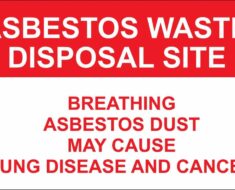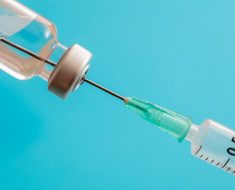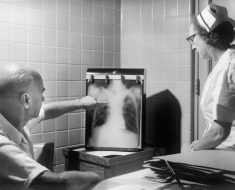In the wake of the recent suicides of fashion and accessory designer Kate Spade and celebrity chef, author, and award-winning travel documentarian Anthony Bourdain, the Wall Street Journal has reported that the National Suicide Prevention Lifeline has seen an increase in calls during the time span following their deaths.
“Whenever a notable person commits suicide, calls to the hotline spike,” said John Draper, director of the National Suicide Prevention Hotline. “Just days before Mr. Bourdain’s death, news of another famous person had spread: handbag designer Kate Spade, whose apparent cause of death was also suicide. Calls jumped 25% in the two days after her death, compared with the same period the previous week.”
Although not necessarily linked to the recent celebrity deaths, the worrisome trend showcases an ongoing problem that American adults are facing — personal challenges in their current lives that they feel they’re unable to cope with.
According to the Wall Street Journal, there are many factors that can trigger a person to commit suicide. The national hotline was created to serve as a lifeline for individuals contemplating suicide and is a beneficial resource for people to turn to for coping strategies and support in times of need. The network of crisis call centers are staffed by trained counselors and each call is directed to one of the 150 centers located near each caller.

According to a recent CDC report called “Vital Signs,” the suicide rate in the U.S. has spiked to 25 percent since 1999, with 45,000 deaths in 2016 alone. Almost every state in the country has experienced an increase in suicide deaths, one of the most common causes of death in the U.S. in two decades. Nearly 54 percent of the individuals did not have a diagnosed mental illness.
“The increase in calls that hotlines experience isn’t necessarily a direct result of hearing about a celebrity suicide,” Alan Ross, executive director of Samaritans suicide prevention center in New York, told the Wall Street Journal. “In many cases, individuals are already struggling with mental health and the news of a death prompts them to seek help.”
As CNN reported, suicide rates increased in 25 states by more than 30 percent. 49 states actually saw a rise in suicides, with Nevada being the only one with a decrease in deaths caused by suicide.
“Our data show that the problem is getting worse,” said Dr. Anne Schuchat, principal deputy director of the CDC.
The government study analyzed data provided by the National Vital Statistics System for 50 states and the District of Columbia, for people 10 and older from 1999 through 2016.
“These findings are disturbing. Suicide is one of the top 10 causes of death in the US right now, and it’s one of three causes that is actually increasing recently, so we do consider it a public health problem — and something that is all around us,” Schuchat said. The other two top 10 causes of death that are on the rise are Alzheimer’s disease and drug overdoses, she noted.
Common factors leading up to the incidents include loss of relationships, economic hardships — especially in Western rural areas with less access to care — and veterans. Additionally, the report found that there was an increase in rates among women, and middle-aged individuals experienced the highest increase.
“We think a key message is, there’s not just one group; many are at risk,” added Schuchat.
Luckily, the national hotline has proven beneficial and has been a positive catalyst to preventing suicide deaths. Individuals facing hardships — whether economic challenges, stress at work, or relationship problems — are able to speak one-on-one with trained professionals and have the support they need during moments of crisis.
“The research is really clear that these calls have been shown to reduce emotional distress and suicidal crisis,” Mr. Draper said.
One thing is for certain: eliminating the stigma behind mental health and maintaining an open dialogue and connecting with others can help prevent these incidents.
If you or someone you know is in crisis, please call the National Suicide Prevention Lifeline at 1-800-273-TALK (8255) or contact the Crisis Text Line by texting TALK to 741741. For readers outside the U.S., visit Suicide.org or Befrienders Worldwide for international resources you can use to find help.
Source: Read Full Article





